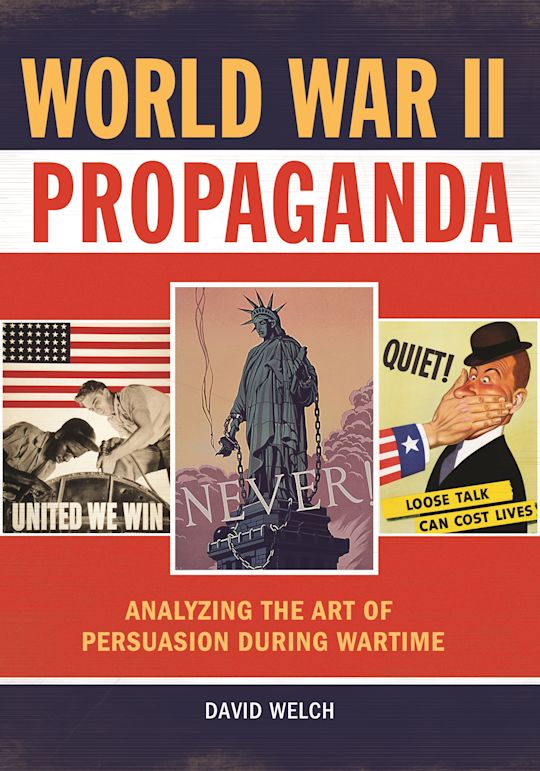The Principal Cause of Global Instability
Realimiteit Theory© – Realimity Principle© – Realimiteit©
Lynn
Margulis: ‘if it metabolizes it is alive, if it not metabolizes it is not.’
1.
We have to take
into account that there is a natural limitation for the realisation of goals.
2.
Desired realities
or goals can be achieved and be sustainable only if they remain within natural
boundaries of functionality which are dependent on cognition, i.e. interaction
with environment by a continuous exchange of information.
Life
or living systems (Capra, Bateson) depend on the criteria needed for survival;
for example health: a non-polluted environment, social safety, biological and
ecological balance. According to Maturana and Varela’s Santiago Theory of
Cognition, life is autopoietic; this means it creates, maintains and sustains
itself through communication (cognition) with the environment. The sustenance
of life therefore depends on the availability of creative conditions. Life that
encounters ‘destructive’ conditions will perish as it cannot be sustained or
sustain itself anymore.
Life
is continuously interacting with environment through information. All
information would be needed to pick and choose that information which is
constructive for life. We speak about feedback loops, which are information
carriers of amplifying nature; which are called ‘positive feedback loops’ and
information carriers of dampening or correcting information are called
‘negative feedback loops’. We can say that living is a continued learning and
adaptation process.
In
order for an organism to maintain homeostasis or equilibrium, it needs to use
both information carriers. The feedback loops carrying the most useful
information are chosen automatically as these enhance the chance of survival of
the organism. These feedback loops are ever changing because the environment is
also changing all the time. When for example the quality of air has been
compromised, an organism needs to adapt to these new parameters, because if it
can’t it cannot sustain itself. The environment does not determine a change
within an organism. It is the structure of an organism itself that determines a
change. This in short is called; adaptation, which is possible by allowing ALL
information.
Now,
fast forward this to organisations, businesses, industrial production or
political processes. What these entities are often doing is to ignore
information which contradicts purpose, whilst only accepting that information
which confirms it. We have to ask this question; can there be business or
political ideology without life? When we see organisations as living, social
systems of communication (Luhmann), we intuitively understand that stability
and sustainability can only be achieved by using positive – and negative feedback in a balanced
order. Luhmann stated that such
social
systems of communication are autopoietic too and are sustained by communication
or the constant gathering and sharing of (new) information. This autopoiesis creates
the very basis for steering, predictability and survival of the system. A
continuous interactive learning process is the basis for sustenance and
continuity.
But
when we look at for example; Erdogan’s Turkey, the European Commission,
Washington’s reckless military interventions, hydrocarbon effects on the
environment, international political landscapes or GMO production, we can
easily observe that their stability or sustainability is being made possible by
only using information which confirm goals. It is being sustained artificially
by misinformation or by suppressing (not allowing) dampening, or corrective
feedback.
This
automatically leads to a status of non-adaptability, because these
organisations try to operate beyond natural boundaries of functionality. This
makes them immediately instable and unsustainable, which will lead to entropy
(disorder) which is mathematically calculable. We talk about path dependency.
A
constant flow of corrective feedback is the only basis for balance and
sustainability for social systems as they are living systems too.
Therefore
I created this Realimiteit Tool with which we can measure, map and predict
stability and sustainability in any system, organisation or enterprise. We do
this by researching if all feedback loops are connected, balanced, dynamic and
used to enable adjusting the steering or control of the organisation. We ask
two questions:
a. Is the organisation positive interdependent? All
stakeholders will benefit.
b.
Is the
organisation negative interdependent? Only some stakeholders benefit because
others (re; society, environment, flora, fauna, people) cannot. An action, process or goal that depends on negative
interdependence is instable and unsustainable.
Energy
and Resources
Imagine
how much energy and resources are wasted by organisations to create
unpredictable and unsustainable realities which cannot survive outside of
environment or exist beyond natural boundaries of functionality which in fact
means outside Realimiteit.
Any
organisation that tries to operate in such a manner, i.e. defying nature’s
capacity to carry or condone it, needs lobbyists, lawyers or propaganda through
media used to stifle that information which could confirm actual harmfulness of
products, ideology or services. When that energy and resources would be used to
implement change from harmful to non-harmful, the organisation that allows for
ALL information would be able to steer and control the organisation in an
adaptive and sustainable way. Future, long term investments can therefore be
justified.
Here is a listing of some negative interdependent
industries, organisations, corporations, political ideologies. I will also add
the non-linear effects (beyond control).
Let me first start by explaining what negative
interdependence means and compare it with the opposite which is 'positive
interdependence’.
Positive interdependent? All
stakeholders will benefit.
Negative interdependent? Only some stakeholders benefit
because others (people, society, environment, flora, fauna, etc.) will or
cannot.
It becomes quite easy to understand which organisation,
services or products are negatively interdependent and which ones are not but luckily
the number of sustainable ones is growing fast.
Let's start with the First Cause Principle: the financial
industry, which in fact is causing organisations, people, industries, political
processes to act with in mind the intention of financial gain. The intention to
make money has become prioritised and leads to ignoring information which could
jeopardize or contradict it.
Money is created from the issuance of credit by those who
benefit from this privilege at the cost of others.
Non linear effect: This leads to the stratification of
society and the growing gap between the poor and the rich, which leads directly
to conflict.
The fossil fuel and mining industries: Although they
benefit human kind by producing products we all have grown accustomed to use,
they come at great cost for human and non-human life, the environment and
social cohesion.
Non-linear effect: Climate change is a direct
consequence of burning fossil fuels. Bloody conflicts are often the result of
the pursuit of natural resources.
The GMO industry: Information proving potential harm of
such products is suppressed or ignored, whilst only supporting information is
promoted.
Non-linear effect: Millions of acres of crop producing land
have become contaminated.
The weapons industry: The reason a man is afraid is what he
knows about himself inside. Globalist and corporatists policies are backfiring.
NATO destroyed Libya, therefore a Libyan killed kids during a pop concert.
Non-linear effect: The military industrial complex has
become dependent on conflicts and wars, so they employ lobbyists and sponsor
politicians to make sure peace is not a priority. (NATO’s existence now
depends on a non-existent, media hyped, Russian Threat).
The Pharma and Health Industry: Our longevity has been
prolonged by modern medical science, but also a negative interdependence
exists: if all people would be healthy, they’d be out of business.
Non-linear effect: More sickness, means more profit.
The intelligence industry: All over the world, governments
are spending billions of dollars for security and intelligence, because of the
fear that their insidious agendas could be exposed to the public.
Non-linear effect: If intentions have ulterior motivations,
secrecy will be enforced, whilst whistle blowers will be hunted down. (relevant
information is being suppressed – Wikileaks Julian Assange, Chelsea Manning,
Edward Snowden)
Journalism: Despite the sheer volume of news broadcasting
enterprises, truthful news is not easy to find. When a newspaper depends on
income earned by advertising, it will not oppose the products or services it
advertises from fear of losing customers.
Non-linear effect: This would mean that contradicting or biased
news could be suppressed and that fake news could replace true news.
Politics: Corruption, violence, abuse of power, political
ideologies are all negatively interdependent, because they depend on others
being used for some ulterior purpose.
Non-linear effects: Hegemonic power grabs, fascism,
despotism, corruption, violence, rebellion, etc.
What do these negative interdependencies have in common?
They depend on suppressing information
which confirms negative interdependence. This is in my opinion the cause of all global crises. A positive message
is that when we finally are willing to accept this, we can commence phasing
them out and replacing them with positive interdependent solutions. This would
create billions of jobs and save us all from collapse, because that is the road
we are on as history confirms.
But there is also good and sustainable so-called positive
interdependence.
Here are a few developments that gives hope and future to
all of us:
Young entrepreneurs are looking to solve the energy, food,
drinking water issues and using the latest technologies to replace harmful
methods into non-harmful ones.
Solutions for global food security has been given by
proving that localised production would actually feed more people than by
global commercialisation of agriculture. This will also lessen the need for
polluting transportation and international competition. There are communities
that cooperate into becoming self-sufficient and self-supporting by exchanging
ideas, skills and knowledge which enhances mutual benefit. Solar and water
power can be used to drive machines and industries if we would just go for it.
Resource conflicts can be solved by systems thinking and cybernetics, the
science is there for us all to use.
Positive interdependence need common goals as priorities. I
simplified them as just three goals:
1.
The preservation of
the environment ( life cannot live without interaction with it)
2.
The protection of
human and non-human life
3.
The building and
maintenance of global social cohesion
When political and economic choices become dependent on
these 3 goals, everything else we do, choose or decide will fall into its
proper place automatically.
Remark to the reader: Perhaps you will read this and then
decide to ignore it because this information would not fit your goals. But the
Realimiteit Theory proves that in order to prevent entropy (disorder) all
information (including these words) would have to be used to steer your
organization safely. Corporate Social Responsibility or Ethics, are also
information one cannot afford to ignore.
Arend van Campen, July 12, 2017



Reacties
Een reactie posten